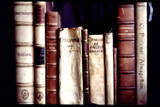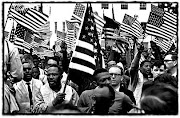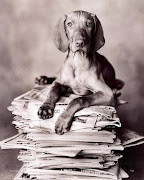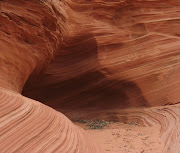

 From Asia, America and Africa, in the 21st century with its aging first decade, come landmark moments surrounding elections testing the strength of representative democracy. Pakistanis, Americans and Kenyans feel passionately that fair elections involve casting and counting each valid vote as the nation's laws demand. Certainly, not by presidential appointments decreed by stacked Supreme Courts. Believe what leaders do, not what they say. Electing a president is no small thing in a democracy.
From Asia, America and Africa, in the 21st century with its aging first decade, come landmark moments surrounding elections testing the strength of representative democracy. Pakistanis, Americans and Kenyans feel passionately that fair elections involve casting and counting each valid vote as the nation's laws demand. Certainly, not by presidential appointments decreed by stacked Supreme Courts. Believe what leaders do, not what they say. Electing a president is no small thing in a democracy. Pakistan did a slip and slide two-step under General Pervez Musharraf after the coup he orchestrated installed him as president. His recent barely-there 2007 electoral majority received protection from an intimidated press, his handpicked Supreme Court, which also upheld his unilateral declaration of martial law. For global public consumption, he said he was pro democracy and would voluntarily give up wearing his military shoulder jewelry for the good of Pakistan. His Pakistan Peoples Party (PPP) parliamentary rival, the now martyred Benazir Bhutto, (vote for one) a) according to eyewitnesses, died from gunfire first or b) as somebody between the hospital or sorta inside her armored Landcrusier car claims - she slammed her head on the sunroof or c) other reports shout it was shrapnel from the suicide bomber. Riots ensued. Pakistan's leadership quickly pointed to al Qaeda as the assassins attempting to wrap it all up in a neat bow. Pakistan's government now apologizes for the unseemly and undue haste to complete the investigation. The final coup de gras being a delay in parliamentary elections scheduled for 8 January, 2008.
Pakistan did a slip and slide two-step under General Pervez Musharraf after the coup he orchestrated installed him as president. His recent barely-there 2007 electoral majority received protection from an intimidated press, his handpicked Supreme Court, which also upheld his unilateral declaration of martial law. For global public consumption, he said he was pro democracy and would voluntarily give up wearing his military shoulder jewelry for the good of Pakistan. His Pakistan Peoples Party (PPP) parliamentary rival, the now martyred Benazir Bhutto, (vote for one) a) according to eyewitnesses, died from gunfire first or b) as somebody between the hospital or sorta inside her armored Landcrusier car claims - she slammed her head on the sunroof or c) other reports shout it was shrapnel from the suicide bomber. Riots ensued. Pakistan's leadership quickly pointed to al Qaeda as the assassins attempting to wrap it all up in a neat bow. Pakistan's government now apologizes for the unseemly and undue haste to complete the investigation. The final coup de gras being a delay in parliamentary elections scheduled for 8 January, 2008. In 2000, the world watched the US Supreme Court ignore Equal Justice Under Law in a hotly debated election. America ripped itself asunder into permanent acne blotches of landlocked red and coastal blue states and never the twain shall meet for the Common Good. A bamboozled press bought the overaggressive Delay staffers as just regular Americans act, now named the Brooks Brothers Riot, yelling outside Florida's official election counting. In 2004, the disenfranchisement in Ohio was apparent but not enough to over come a Bush lead tabulated on increasingly discredited electronic voting machines.
In 2000, the world watched the US Supreme Court ignore Equal Justice Under Law in a hotly debated election. America ripped itself asunder into permanent acne blotches of landlocked red and coastal blue states and never the twain shall meet for the Common Good. A bamboozled press bought the overaggressive Delay staffers as just regular Americans act, now named the Brooks Brothers Riot, yelling outside Florida's official election counting. In 2004, the disenfranchisement in Ohio was apparent but not enough to over come a Bush lead tabulated on increasingly discredited electronic voting machines. Kenya's presidential election on 27 December, 2008 ended with a contested result, igniting fires and hails of bullets from political factions that mirror the presidential candidates, Kibaki of the Kikuyus tribe and Luos, the tribe of opposition opponent, Raila Odinga. The immediate swearing in of the putative president, Mwai Kibaki, occurred with curfews enforced. Kenya's press has been effectively shuttered and silenced by the government. Kenyan police count over 100 dead amid demonstrations in poor areas of Nairobi. Citizens feel disenfranchised by the system and view it as corrupt as their newly reelected president.
Kenya's presidential election on 27 December, 2008 ended with a contested result, igniting fires and hails of bullets from political factions that mirror the presidential candidates, Kibaki of the Kikuyus tribe and Luos, the tribe of opposition opponent, Raila Odinga. The immediate swearing in of the putative president, Mwai Kibaki, occurred with curfews enforced. Kenya's press has been effectively shuttered and silenced by the government. Kenyan police count over 100 dead amid demonstrations in poor areas of Nairobi. Citizens feel disenfranchised by the system and view it as corrupt as their newly reelected president."The international community knows exactly what has
happened: Mr. Kibaki lost the election," says opposition presidential candidate Raila Odinga at a Monday press conference. "We will not accept what happened yesterday. It is important that this crisis be resolved peacefully, and we have urged our supporters around the country ... to resist acts of violence."
If the Dec. 27 elections were a
test of Kenyan democracy, as analysts said they would be, the past few days show Kenya heading for a failing grade.
Charges of rigging from both major parties, violent protests, and a spiral of ethnic violence – some of it prompted by racist cellphone text messages – have killed more than 120 Kenyans around the country.
"From an outside perspective, it looks like [this election] happened too fast," says Bradley Austin, an election expert at the International Foundation for Election Systems. "I don't think they had all the systems in place that they wanted. And then you add in 2 million additional voters [since the 2002 election], with such a high voter turnout, and you have what you have here." (photos AP & European Press Agency)
It boils down to trust in people leading governments and demanding change from an establishment of entitlement. In an amazing collection of current events, constitutional law professor, Barack Obama is the son of a Kenyan scholar who herded goats, lived in Asia proper with practicing and secular Muslims and is now running to become Chief Hopemonger or by its rightful name, president of the United States of America, after 8 long bitterly divided years. A new beginning is needed. A triumph for democracy with peaceful passages of power would be most welcome in the New Year.

An aptly named book, from the legendary Howard Zinn is
A Power Governments Cannot Suppress .










No comments:
Post a Comment